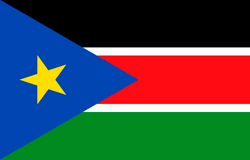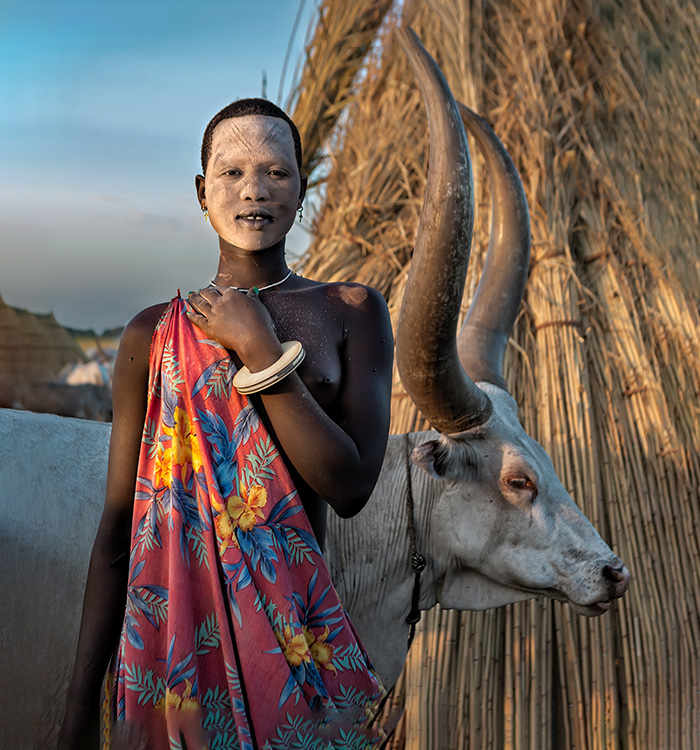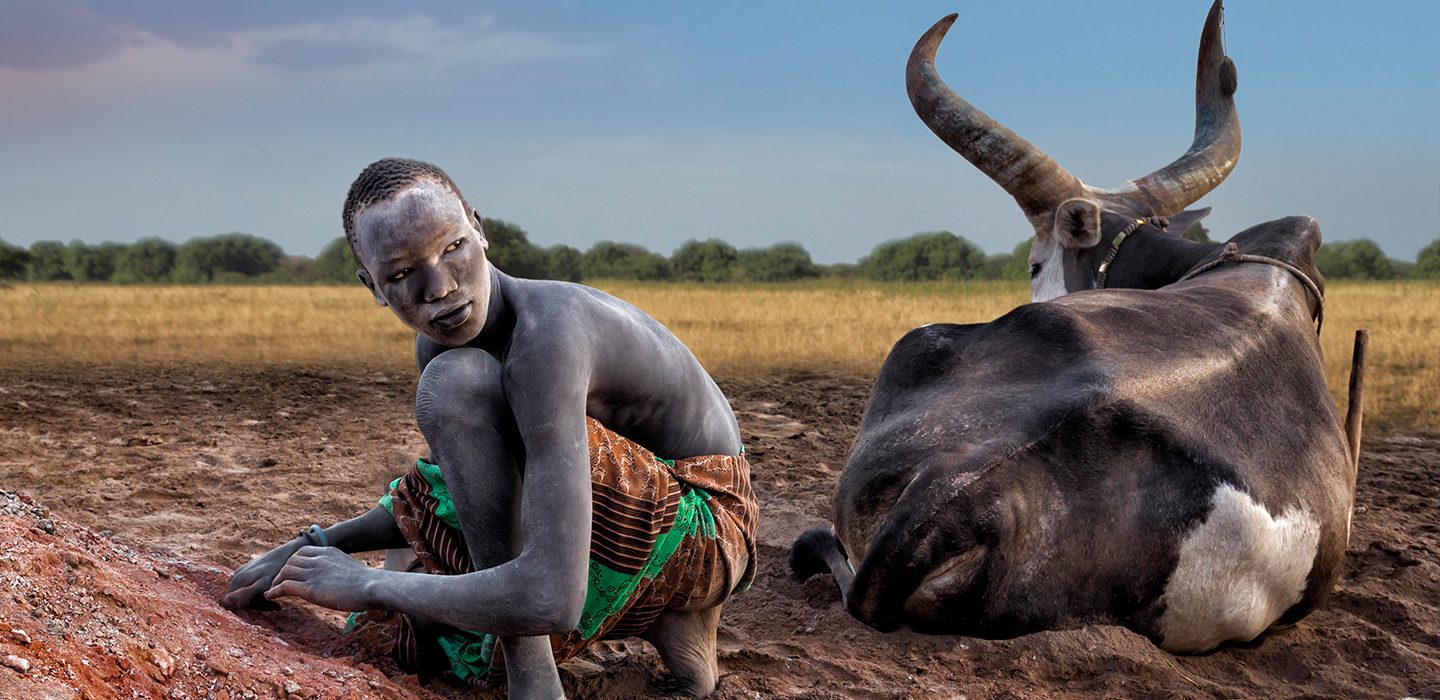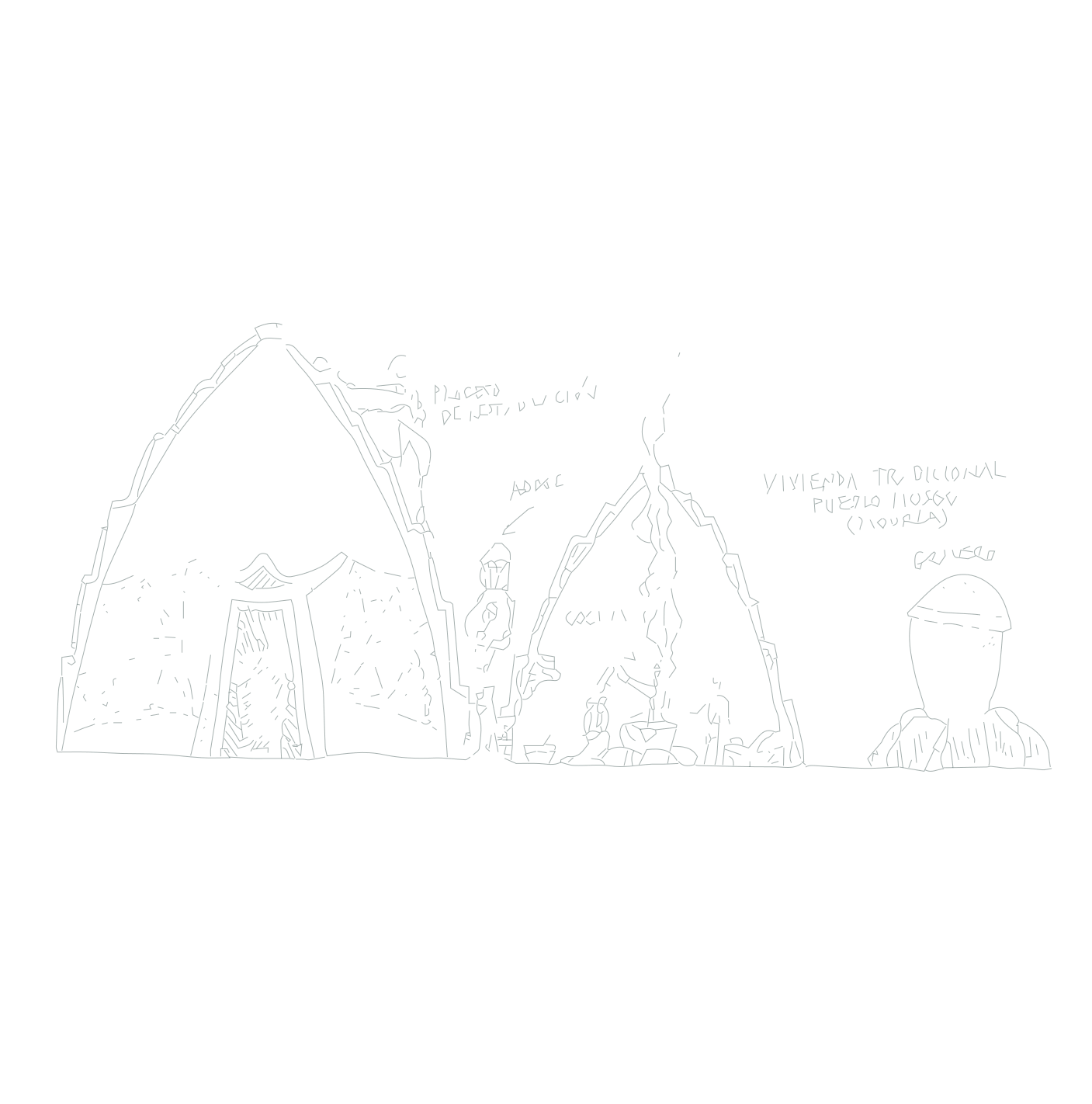
South Sudan became an independent country in July 2011. Before it had been part of greater Sudan and previously a region named Equatoria ruled by the British. It was during the British colonization that this part of West Africa was declared a ‘Closed District’. From 1916 until 1946 no roads, no Western education, hospitals or mission station where allowed in that territory. This 30 years of isolation explain, in part, why we find tribal structures and traditions that have been lost if most of Africa. The long Civil War (1956-2002) also helped to isolate many regions of what is today the Republic of South Sudan. Middle-Africa’s team visited South Sudan in November 2012 and we fell in love with the new African nation. South Sudan is unique for its tribes, its wild unspoilt nature, and its untamed spirit. Dinka, Nuer and Mundari giant cattle camps are already a traveller’s myth. Every year more and more people want to experience what it feels like to roam inside one of the many cattle camps along the White Nile and meet the long horned cows and its owners the Nilotic tribal cattle herders…tallest and darkest people on Earth. It is just magic. Continuing northwards, towards the Sudan border, we find the Sudd, Africa’s largest freshwater ecosystem with approximately 57,000 km2. It home of the last big herds of elephants in the Horn of Africa and the refuge for hundreds of bird species. It is also home of South Sudan’s dominating tribal groups, the Dinka, the Nuer and the Shilluk. If we drive (or fly) eastwards we reach two key regions of South Sudan and major attractions for those travelling there. First, the mountain region around Torit city and second the plains of Kapoeta. South Sudan’s Imatong, Dongotona, Lopit, and Didinga are home of several tribal groups and small kingdoms that have survived to this day. For trekkers and rare flora lovers Mount Kinyeti (3.187 mts.) in the heart of Imatong Mountain Range is their place to go. For tribal and history lovers, Dongotona, Lopit and Didinga Mountain Ranges are unique paradises in Africa not to be missed. Middle-Africa organises tailor made trips to all these mountains regions of South Sudan with expert guides and all the necessary hiking and camping equipment. The second part of eastern South Sudan revolves around Kapoeta City, great everyday market place. Capital of Toposa tribe, one of Africa’s most conservative and traditionalist tribes. Toposa, part of Ateker ethnic group together with Karamajong in Uganda, Turkana in Kenya and Nyangatom in Ethiopia, are cattle herders and live in isolated fenced villages. They practice body and facial scarification and Toposa women still cover their bodies with decorated cow and goat skin. From Kapoeta all tribal lovers can explore Larim and Didinga territories. Unique vernacular architecture, amazing ecosystem and rich unspoilt tribal culture like anywhere in Africa… North of Kapoeta, following the Ethiopian border one can reach Boma National Park, the size of Belgium and the area where Africa’s second largest ungulate migration takes place. Spotting this natural wonder is not easy but with time and means one can experience Africa as it used to be. Boma also hosts one of the few remaining mountain tropical forests left in the Horn of Africa. That forests protects small primates, parrots, rare amphibians, endemic reptiles and the Kachipo tribe. This tribe, related to the famous Surma or Suri people in the Ethiopian western side of Omo River, are probably Africa’s last untouched tribal group. An important trek is needed to reach their remote settlements up Boma Plateau. As experts in South Sudan we cannot seize to recommend it as a unique and rare destination in Africa. It is probably the last place in Africa where you can feel real Africa.

We have the best quality specialized vehicles to travel different surfaces and discover the best that Africa can offer us


